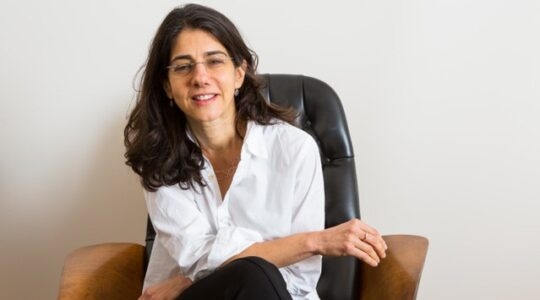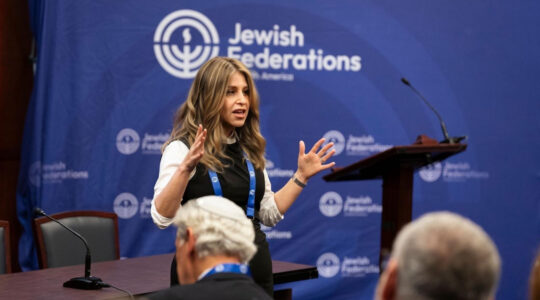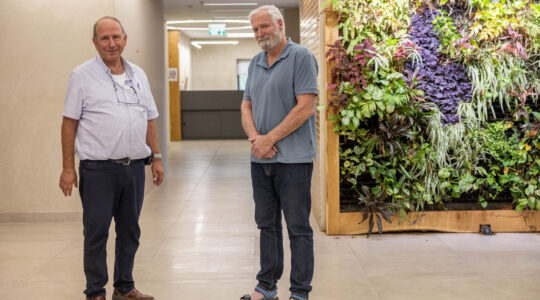Spent Thursday on a bus with a group of women who are donors to the JUF-Jewish Federation of Metropolitan Chicago.
All told, the Lion of Judah organizers sent out more than 30 busses full of women to check out various projects that their donations to the federation system support. Each day trip had three parts: Two visits to see first-hand programs funded by the federation system and one “fun” activity; most of the itineraries included a component showing off a program that is part of the Jewish Agency’s MASA initiative.
Something of a take on Birthright Israel, MASA provides scholarships to non-Israeli Jews who attend extended-stay programs in Israel. The scholarships range between $2,000 and $3,000 for North Americans and Europeans, and up to $5,000 for Jews from the former Soviet Union. To secure approval from the Jewish Agency, the programs must be educational, include Hebrew language training, and feature a community service. Last year, MASA programs drew about 8,200 participants. Most of the programs have actuakky been in existence for years and applied to take part in the Jewish Agency initiative.
But the Jewish Agency is investing heavily in creating new programs on its own – starting a MASA incubator that spent some $1 million last year and will have a $1.5 million budget this year.
That is a serious investment, especially considering the agency’s recent announcement that it will cut $45 million from its total budget next year.
As the agency tries to reinvent itself following the drop in alliyah, MASA is clearly becoming its flagship program and focus.
The 20 women from Chicago and I visited one of the new programs launched by JAFI’s incubator: Budokan Martial Arts and Israel Leadership is a five-month program that teaches Jewish history and martial arts at the historic Ulpan Akiva, on the beach in Netanya. The students, who have varying degrees of experience in martial arts, learn a combination of karate, judo, akaedo and the Israeli martial art Krav Maga, and also learn about Jewish history by studying Jewish heroes. Now in its first session, the program has 8 students.
The agency is banking on programs like Budokan taking off. The incubator is expected to create programs that will bring an additional 800-900 new participants into MASA, according to its director, Hagai Shaanani.
Shaanani certainly faces an uphill battle.
Though MASA is in its fourth year and a main focus of the Jewish Agency, it is apparently not well-known among federation donors.
The majority of the women on the Chicago bus had never heard of MASA – even though the Chicago federation is big backer of the Jewish Agency that gives more per capita to Israeli causes than any other federation.
This is not an indictment of those women at all, but should serve as a warning to the Jewish Agency.
The organization is in the process of ramping up its JAFI-North American Council, which was designed to create a national lay leadership that could advocate at the local federation level for funding for Jewish Agency causes. But it obviously still has work to do. If it is going to be successful, the word MASA needs to become part of the lexicon of the people like the women on this bus – all of whom give at least $5,000 to the federation each year, and most of whom who give much, much more.
Shaanani says he is very concerned about the economy and how that might affect MASA.
Unlike Birthright, which is totally free, most of the MASA programs cost around $9,000 per session for each participant. S even with a scholarship, a participant from North America is looking at a $6,000 outlay. That could be a tough sell as wallets tighten.

Help ensure Jewish news remains accessible to all. Your donation to the Jewish Telegraphic Agency powers the trusted journalism that has connected Jewish communities worldwide for more than 100 years. With your help, JTA can continue to deliver vital news and insights. Donate today.





